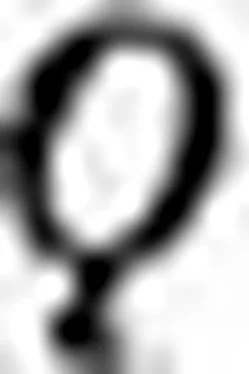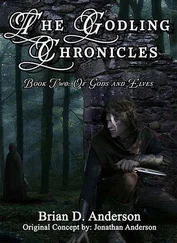Hilda Ellis Davidson - Gods and Myths of Northern Europe
Здесь есть возможность читать онлайн «Hilda Ellis Davidson - Gods and Myths of Northern Europe» весь текст электронной книги совершенно бесплатно (целиком полную версию без сокращений). В некоторых случаях можно слушать аудио, скачать через торрент в формате fb2 и присутствует краткое содержание. Жанр: История, на английском языке. Описание произведения, (предисловие) а так же отзывы посетителей доступны на портале библиотеки ЛибКат.
- Название:Gods and Myths of Northern Europe
- Автор:
- Жанр:
- Год:неизвестен
- ISBN:нет данных
- Рейтинг книги:5 / 5. Голосов: 1
-
Избранное:Добавить в избранное
- Отзывы:
-
Ваша оценка:
- 100
- 1
- 2
- 3
- 4
- 5
Gods and Myths of Northern Europe: краткое содержание, описание и аннотация
Предлагаем к чтению аннотацию, описание, краткое содержание или предисловие (зависит от того, что написал сам автор книги «Gods and Myths of Northern Europe»). Если вы не нашли необходимую информацию о книге — напишите в комментариях, мы постараемся отыскать её.
Gods and Myths of Northern Europe — читать онлайн бесплатно полную книгу (весь текст) целиком
Ниже представлен текст книги, разбитый по страницам. Система сохранения места последней прочитанной страницы, позволяет с удобством читать онлайн бесплатно книгу «Gods and Myths of Northern Europe», без необходимости каждый раз заново искать на чём Вы остановились. Поставьте закладку, и сможете в любой момент перейти на страницу, на которой закончили чтение.
Интервал:
Закладка:
Asgard
Once heaven and earth were formed, it was time to set about the building of Asgard, the realm of the gods. Here there were many wonderful halls, in which the gods dwelt. Odin himself lived in Válaskjálf , a hall roofed with silver, where he could sit in his special seat and view all the worlds at once. He had another hall called Valhalla, the hall of the slain, where he offered hospitality to all those who fell in battle. Each night they feasted on pork that never gave out, and on mead which flowed instead of milk from the udders of the goat Heidrun, one of the creatures that fed upon Yggdrasill. Odin’s guests spent the day in fighting, and all who fell in the combat were raised again in the evening to feast with the rest. Horns of mead were carried to them by the Valkyries, the maids of Odin, who had also to go down to the battlefields of earth and decide the course of war, summoning fallen warriors to Valhalla. Somewhere in Asgard there was a building with a roof of gold, called Gimli, to which it was said that righteous men went after death. There were other realms beyond Asgard, like Alfheim, where the fair elves lived, and as many as three heavens, stretching one beyond the other.
The Gods
As to the gods who dwelt in Asgard, Snorri twice gives their number as twelve, excluding Odin himself. Odin was the father and head of the Aesir; he was called All-Father, but had many other names, among them One-eyed, God of the Hanged, God of Cargoes, and Father of Battle. He journeyed far and wide over the earth, and had two ravens to bring him tidings from afar. His eldest son was Thor, whose mother was Earth. Thor was immensely strong, and drove in a chariot drawn by goats. He possessed three great treasures: the hammer Mjollnir, which could slay giants and shatter rocks; a belt of power which doubled his strength; and iron gloves with which to grasp the terrible hammer. Another son of Odin was Balder, said to be the fairest of all and most deserving of praise; he was white of skin and bright-haired, and was both wise and merciful. The gods Njord and Freyr were also dwellers in Asgard, but were not of the race of the Aesir. Njord came of the Vanir, and was sent to Asgard as a hostage when the two races were at war, and Freyr was his son. Njord controlled the winds and the sea, helped in fishing and seafaring, and brought men wealth, while Freyr gave sunshine and rain and the gifts of peace and plenty. Freyr possessed the ship Skíðblaðnir , large enough to hold all the gods, but small enough when folded to lie in a pouch, and also a wonderful boar with golden bristles. Another god was Tyr, who could give victory in battle, and it was he who bound the monster Fenrir and was left as a result with only one hand. There was also Bragi, who was skilled in the use of words and in the making of poetry. We hear too of Heimdall, who was called the white god, and was said to be the son of nine maidens. His dwelling was beside the rainbow bridge, for he acted as the gods’ warden, guarding heaven from the frost-giants. He could see for an immense distance, while his ears were sharp enough to catch the sound of grass growing on earth, and wool on sheep. He owned Gjallarhorn , whose ringing blast could be heard through all the worlds. There was also among the gods Loki, the son of a giant, who was handsome to look upon but given to evil ways. He was a cunning schemer, who both helped and hindered the gods, and he gave birth to the wolf Fenrir, to the World Serpent, and to Hel, the ruler of the land of death. These were the chief of the gods, and beside them were others of whom we know little: Ull, a famous archer and skier, Forseti, the son of Balder and a good law-giver, Hoder, a blind god, and Hoenir, who was sometimes the companion of Odin and Loki in their wanderings. The sons of the great gods, like Vali, Vidar, and Magni, had special parts to play, for they were to inherit the world of Asgard when the older generation had perished.
The Goddesses
There were also certain mighty goddesses. Frigg was the wife of Odin, and like him knew the future of gods and men. Freyja was Freyr’s twin sister, and the most renowned of all the goddesses; she helped in affairs of love and had some power over the dead. She drove in a chariot drawn by cats. Freyja was said to have had a husband called Od, who left her to weep tears of red gold at his disappearance. Skadi, the wife of Njord, came from the mountains to marry the sea god. The marriage was not a success, because neither was willing to live away from home, and in the end Skadi went back to the hills, where she went on skis and hunted with the bow. Bragi’s wife was Idun, who had one important part to play: she guarded the apples of immortality, on which the gods feasted in order to keep their perpetual youth. Other goddesses are little more than names. Thor’s wife, Sif, had wonderful golden hair. Balder’s wife was Nanna, and Loki’s Sigyn, while Gna and Fulla are mentioned as servants of Frigg. There is also Gefion, to whom unmarried girls went after death.
The Wooing of Gerd
Besides these, we have the maiden Gerd, who was wooed by Freyr. She lived in the north, and he caught sight of her one day as he sat on Odin’s seat. The radiance from her white arms lit up the sky and the sea, and as he watched, Freyr was overcome by so intense a desire for her that he could neither eat nor sleep. At last he sent his servant Skirnir down to woo her, giving him his own sword and a horse for the journey. Gerd was at length persuaded to yield to Freyr’s wooing and to consent to meet him in nine nights’ time. It was on this account, we are told, that Freyr was without a sword when the last great battle of the gods came to be fought.
The Building of the Wall of Asgard
When the gods built Asgard, one of the giants, who was a great craftsman, offered to encircle it with a splendid wall, to keep out their enemies. If the wall were finished within the space of one winter, it was agreed that he should have the fair goddess Freyja as his reward, and the sun and moon as well. They thought that he could never complete the task and would pay his life as a forfeit, but he was helped by a marvellous horse, Svaðilfari , who moved the stones for him and worked by night, doing twice as much as his master. Three days before the coming of spring the stronghold was nearly completed, and the gods were terrified at the thought of what they had promised. It was Loki who found a way out for them. He took on the form of a mare and whinnied at Svaðilfari , the great stallion, and lured him away. The unfortunate giant never finished the work, and when Thor returned from his travels he did not hesitate to slay him with his hammer. The meeting of the mare and Svaðilfari had one other important result: an eight-legged colt was born who became Sleipnir, the finest of all steeds, on which Odin himself rode.
The Binding of the Wolf
Other creatures said to be begotten by Loki on a giantess Angrboda were of less benefit to the gods. The most terrible was the wolf Fenrir, who was brought up in Asgard, but grew so huge and fierce that in the end only Tyr dared to feed him. He was so menacing that they knew he must be bound, but every fetter which they laid upon him was easily snapped. Finally, guided by the wisdom of Odin, the dwarfs forged a chain for him, made from the secret and impalpable things of the world – the roots of a mountain, the noise of a moving cat, and the breath of a fish. It seemed no more than a silken cord, yet no force could break it. The wolf thought it harmless, but he would not allow it to be laid upon him unless one of the gods placed a hand between his jaws as a hostage. Tyr alone was prepared to do this, and so the wolf was bound, the chain held, and the gods laughed – all but Tyr, who lost his hand.
Читать дальшеИнтервал:
Закладка:
Похожие книги на «Gods and Myths of Northern Europe»
Представляем Вашему вниманию похожие книги на «Gods and Myths of Northern Europe» списком для выбора. Мы отобрали схожую по названию и смыслу литературу в надежде предоставить читателям больше вариантов отыскать новые, интересные, ещё непрочитанные произведения.
Обсуждение, отзывы о книге «Gods and Myths of Northern Europe» и просто собственные мнения читателей. Оставьте ваши комментарии, напишите, что Вы думаете о произведении, его смысле или главных героях. Укажите что конкретно понравилось, а что нет, и почему Вы так считаете.












